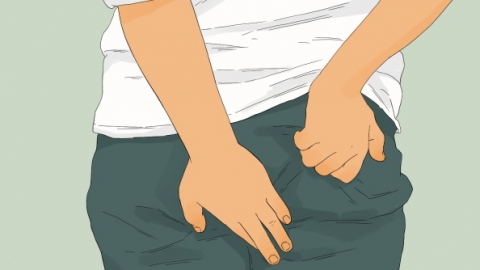What causes weight gain in the buttocks?
Generally speaking, the term "butt" refers to the buttocks. Buttock obesity may be caused by genetic factors, aging, polycystic ovary syndrome, Cushing's syndrome, hypertension, and other reasons. Symptomatic management through general treatment, medication, and other methods is recommended. If discomfort occurs, timely medical consultation and treatment are advised. Detailed analysis is as follows:

1. Genetic Factors
Certain individuals may experience increased fat accumulation in the buttocks due to hereditary factors, which can lead to buttock obesity. Usually, no specific treatment is required, but if desired, medical aesthetic procedures can be used for improvement.
2. Aging
With advancing age, the body's basal metabolic rate gradually declines, potentially leading to fat accumulation in the buttocks. This may also be accompanied by symptoms such as skin laxity and decreased bone density. Regular aerobic exercise and strength training, such as running, cycling, and squats, are recommended to promote fat burning and enhance the shape of the buttocks.
3. Polycystic Ovary Syndrome
Polycystic ovary syndrome is a common endocrine disorder that can cause hormonal imbalances affecting fat distribution, making fat accumulation in the buttocks more likely. It may be accompanied by symptoms such as menstrual irregularities, infertility, and acne. It is recommended to take medications such as progesterone capsules, dydrogesterone tablets, and letrozole tablets under medical guidance.
4. Cushing's Syndrome
Cushing's syndrome is a condition caused by abnormally elevated cortisol levels, which can lead to disturbances in protein, fat, and electrolyte metabolism, resulting in buttock obesity. It is often accompanied by symptoms such as moon face and purple skin striae. It is recommended to follow medical advice to use medications such as mifepristone tablets, bromocriptine mesylate tablets, and ketoconazole capsules to alleviate symptoms.
5. Hypertension
Hypertension is associated with obesity, high-sodium and low-potassium diets, kidney diseases, and other factors. Hypertension can impair the body's metabolic function, making it difficult for fat to be effectively consumed and utilized, thus accumulating in areas such as the buttocks and causing weight gain. Symptoms such as dizziness, headache, and chest tightness may also occur. It is recommended to take medications such as nifedipine tablets, methyldopa tablets, and captopril sustained-release tablets under medical guidance.
It is recommended to engage in moderate daily exercise, such as jogging, swimming, or cycling, to promote blood circulation, improve physical fitness, and reduce the occurrence of obesity.




